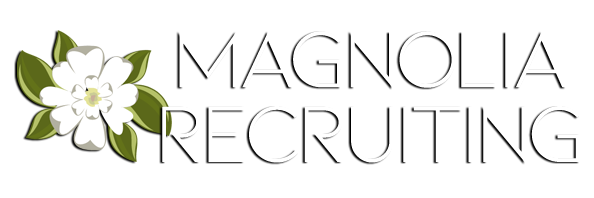By: RN2Pharma
Originally posted at LinkedIn: https://www.rn2pharma.com/post/making-a-good-first-impression-resume-writing-to-go-from-rn2msl
Resume Writing – RN2MSL If you are a nurse pursuing a career as a medical science liaison (MSL), it’s important to create a resume that highlights your qualifications for the position. An effective resume provides information about your relevant experience, education, skills and certifications. MSL positions are often competitive with many applicants for each position. Knowing what to include in a resume can help you make it past the HR team to the interview round and impress hiring managers when applying to be a medical science liaison. In this post, I will explain what MSLs do and will provide an example of a medical science liaison resume. As a nurse, you have a lot of excellent experience to draw from. Highlighting your clinical experience and interpersonal skills is critical to boost your chance of getting a job.
What does a medical science liaison do? A medical science liaison connects pharmaceutical, medical device and biotechnology companies with health care providers delivering education and providing support. MSLs provide fair and balanced information about the product and related clinical data. Additionally, they often provide support for company sponsored and investigator sponsored clinical trials. The job duties of medical science liaisons vary depending on the company they work for and their specific role, but many medical science liaisons specialize in one particular area of research, such as a certain disease or condition. Their job duties might include:
-
Supporting a product throughout it’s lifecycle, acting as scientific communicators and resources within the medical community
-
Supporting internal teams as scientific experts
-
Helping patients gain access to appropriate medicines and seeing that products are utilized safely and effectively
-
Supporting clinical trials including site selection and support of study initiation and monitoring visits.
-
Developing educational resources to teach healthcare practitioners and payers about new drugs and treatments
How to write a medical science liaison resume for nurses:
1. Provide your contact information At the top of your resume, provide your contact information so employers can identify your application. List your full name in a bold font. If you have a relevant certification or advanced degree, you can list the credential after your name. On a separate line, provide your phone number, email address and location, including your city and state. Including this information on your resume ensures an employer can contact you if they want to schedule an interview. You may also want to include a link to your online profile or professional website. When you finish writing your contact information, proofread it to ensure it is error-free with clean, easy-to-read formatting. Consider having a friend or colleague read it for you to ensure it is properly formatted and legible. Here’s an example of how you can list contact information on your resume: Jane Smith JaneSmithMSL.com JaneSmith@gmail.com | 612-590-6155 | Minneapolis, Minnesota 2. Write a summary After listing your contact information, write a professional summary to describe your experience and qualifications for a medical science liaison position. A summary describes your work experience, relevant skills and training or career accomplishments. The first time they see your resume, employers will likely scan to see whether your profile is a good match for the job. This means that you want your most relevant skills and experiences to be easy to find. A strong summary statement at the top of your resume can increase the chances of the recruiter noticing what you have to offer from the start. In two or three sentences, tell employers why you would be a good fit for the position. This section of your resume can encourage hiring managers to continue reviewing your resume. Including a resume summary can quickly address keywords listed in a job posting. Carefully read the job descriptions for the positions that interest you. You should review sections with titles like “Requirements,” “Experience” or “Education” to decide which skills or experiences you should include in your summary. Creating an effective resume summary is easiest once you’ve taken some time to reflect on your relevant skills and accomplishments and how they relate to the role. Here are three simple steps to develop your summary statement:
· Consider and record your most important experiences and skills. This can include (but is not limited to) items like certifications, interpersonal skills, technical skills, awards or other achievements. · Carefully review job descriptions for positions you’re interested in applying for and take note of the requirements that overlap with your own qualifications. · Put together a two- to three-sentence summary that briefly showcases those skills. Your statement should start with a key adjective for yourself, use the active voice and include key action words to describe your experience.
3. Describe your experience Create a new section to describe your relevant experience. Provide the name of your employer, job title, employment dates and location. For each job, list the various functions you performed, responsibilities and impact, skills learned, accomplishments and promotions. For instance, you may include any job duties that involve researching new drug therapies or medical devices. Start each bullet point with an action verb and describe the impact of your work to show hiring managers your value as an employee. Many employers regard the description of work experience as the most important part of a resume. To get a quick idea of your employment history, your prospective employer will most likely read the work experience section first. As such, this section could be key in moving you forward in the hiring process.
4. List relevant skills In this next section, provide a list of relevant skills to help you be successful as a medical science liaison. You may customize the skills you list to the organization where you’re applying as well as to the specific position. For example, your resume might identify skills in drug development, clinical expertise, education initiatives, and clinical trial expertise. Additionally, you will want to highlight any relevant clinical skills you have in the disease are. You may also list interpersonal skills that apply to all organizations that employ medical science liaisons. Some helpful interpersonal skills that are critical for nurses and also for this position include:
-
Communication – both written and verbal
-
Ability to effectively present clinical data
-
Critical thinking and problem solving skills
-
Teamwork and collaboration
-
Time management and ability to prioritize
-
Self-motivated
-
Passion for helping patients
-
Leadership and management skills
5. Provide educational experience Next, you may list any relevant degrees you have, such as a doctorate, master’s degree or bachelor’s degree. Typically, you list degrees in reverse chronological order, starting with the degree you completed most recently. Provide the full name of your degree and educational institution. Include your graduation date if it occurred within the last three years. In addition, you may list any continuing education courses or certifications you’ve completed that relate to the medical science liaison profession, such as pharmacology, biology, chemistry or immunology or a medical affairs specific certification course.
Template for a medical science liaison resume:
Here’s a template you can use to write your own medical science liaison resume:
[First name] [Last name], [Degree or certification if applicable] [Phone number] | [Email address] | [City], [State]
Professional Summary Two to three sentences that highlight years of experience, relevant skills, education or certifications and achievements as a professional. Consider clinical expertise and interpersonal skills that are key to the position you are applying for.
Experience Identify key words from the job description and where applicable use those words to describe your experience. [Job Title] | [Employment dates] [Company Name] | [City], [State]
-
Strong verb + job duty + impact
-
Strong verb + job duty + impact
-
Strong verb + job duty + impact
Skills – Where applicable, comment on the below interpersonal skills. Use key words from the job description where applicable.
-
Communication – both written and verbal
-
Ability to effectively present clinical data
-
Critical thinking and problem solving skills
-
Teamwork and collaboration
-
Time management and ability to prioritize
-
Self-motivated
-
Passion for helping patients
-
Leadership and management skills
Education Degree and major Name of school or university Certifications and Awards [Certification/Award name] Organization – Year completed or expiration date
Best of luck nailing that first job!

